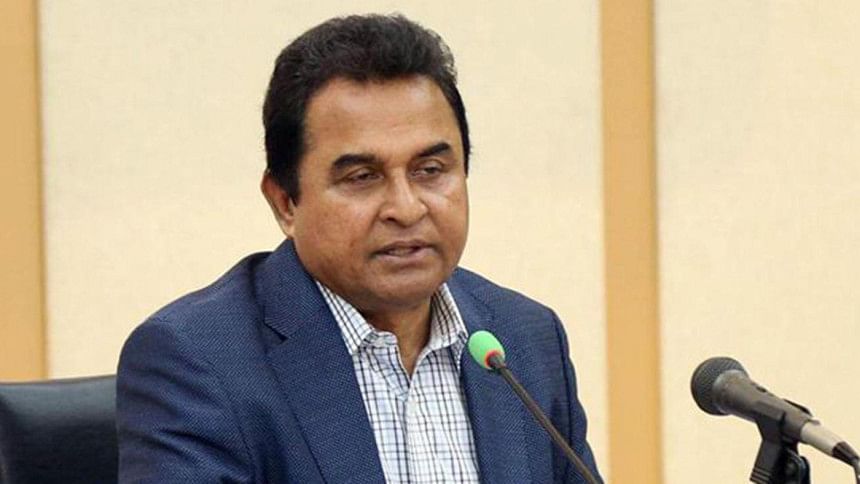FBCCI, NBR ‘narrow gap’ over VAT

The NBR and FBCCI yesterday said they had set aside their differences and had agreed to move forward with the government’s plan to implement the new VAT law from July 1.
The agreement came nearly a week after the revenue collector and the apex trade chamber were at loggerheads over the implementation of the law, which the business community had already delayed by four years.
“We have no gap. All our distances and gaps have closed. We are moving forward to implement the law from the first week of July,” Finance Minister AHM Mustafa Kamal told reporters, after chairing a meeting between the NBR and the FBCCI at the planning ministry’s NEC auditorium yesterday.
Kamal sat with the top brasses of the two agencies, which had exchanged letters over implementation of the new VAT law from the next fiscal year.
The Federation of Bangladesh Chambers of Commerce and Industries (FBCCI) in a letter to the National Board of Revenue (NBR) on May 5 said the new VAT law may fuel inflation and create unrest in society if implemented without adequate “readiness”.
In a reply four days later, the NBR accused the country’s apex trade body of obstructing the enactment of the VAT and Supplementary Duty (SD) Act and said it had ample preparation to implement the new law from July 1.
“The FBCCI has nothing to worry about,” said the revenue authority’s letter addressed to the FBCCI president.
After yesterday’s meeting, Kamal said the “misunderstanding” was cleared and the multiple rates of tax decided previously -- 5 percent, 7.5 percent, 10 percent and 15 percent -- would remain present in the new law.
“We have no plan to increase rates on any item. We are saying what we had said earlier. Nothing new has been added,” said Kamal. “We will proceed the way as we had started. They [FBCCI] have assured us that they have no objection, because we have included all that they demanded.”
FBCCI President Md Shafiul Islam Mohiuddin said they had received assurances from Kamal that rates of taxes would not increase on any item but might rather decline in some cases.
“That is enough for us to have trust and confidence. We want to keep faith on the assurance that we got from the honourable minister,” he said.
Mohiuddin said a decision had been taken on formation of a working committee to settle issues between the revenue authority and businesses, which was very positive.
He said they were promised that the revenue authority would take into consideration any product or sector which might suffer during the implementation phase of the law.
“We have kept enough confidence on that and we want to move forward now,” he said.
Kamal said the FBCCI demanded to know and discuss the different tax rates prior to placement of the plan in parliament, adding it was not possible to share details before placing the budget before the parliament, he added.
He mentioned the question of “readiness” of the government regarding implementation of the law and said the new law would be implemented gradually.
“Implementation cannot be completed in a day. It might take us a long time to completely implement the law,” he said, adding that the government wanted to implement the law in an organised and transparent way so that people could pay tax without hassle.
“We need to collect VAT. But at the same time, we will not hurt anyone,” Kamal said.
NBR Chairman Md Mosharraf Hossain Bhuiyan said they would resolve through discussion any problem which arose during implementation phase.
The Vat law, framed at the prescription of the IMF, originally planned a uniform 15 percent VAT on all goods and services, doing away with the multiple rates under the existing law.
The change sparked protest from businesses, particularly from the FBCCI, on grounds that it would hurt small and medium businesses and stoke inflation.
In the face of the protests, the government thrice deferred enforcement of the new VAT system law, with the latest postponement being an eleventh hour announcement on June 2017, which delayed the enactment by two years.
Afterwards, to ensure smooth implementation of the law from July 1, Kamal, NBR and the FBCCI met on March 31 this year and the businesses agreed in principle with the proposal of multiple VAT rates.

 For all latest news, follow The Daily Star's Google News channel.
For all latest news, follow The Daily Star's Google News channel. 








Comments